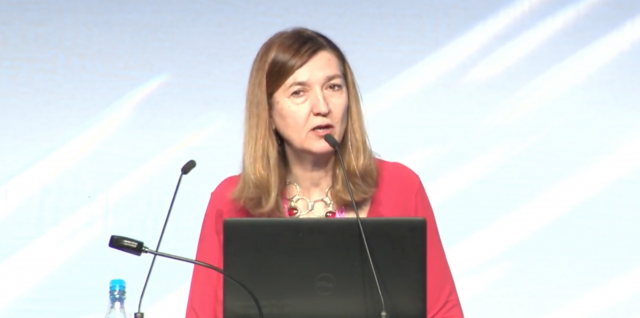
About the talk
In my nearly 20 years of being a second language acquisition (SLA) researcher, I have met many language teachers who told me learning about SLA really shifted their thinking about their teaching practice and their approach to teaching.
I have, however, also spotted many baffled or dismayed faces of language teachers, who just couldn’t believe what SLA had to say (or how little it had to say) about some of their most urgent classroom questions. Many professional development efforts focus on familiarizing teachers with the latest trends in SLA research. But why should language teachers care?
In this talk, I want to show new ways of seeing the relationship between research and teaching, from the perspective of a down-to-earth SLA researcher.
First and foremost, research is about generating useful information for some community, of which the most important one is language teachers. A good example is motivation, an area where SLA researchers have sought, and mostly succeeded, to turn empirical evidence into knowledge that can make the lives of language teachers better.
Often, findings from SLA need a large amount of contextualization and critical professional translation before they can be of use in actual local classroom contexts. A good case in point is research on error correction, which has yielded contradictory and fragmentary findings thus far. But the best research is about generating knowledge without which we would see the world of language teaching differently. Like discovering that the earth is round, not flat. Here, age and multilingualism are two areas in which SLA has a lot to offer to teachers.
My goal is to provide tools for thinking about research and teaching as imperfectly and not always obviously compatible perspectives that can enrich the professional lives of language teachers and researchers alike – but only when a delicate balance between idealism and pragmatism is struck.
About the speaker
Lourdes Ortega is a Professor in the Department of Linguistics at Georgetown University. Her main area of expertise is in second language acquisition, and she is committed to investigating what it means to become a bilingual or multilingual language user later in life in ways that can encourage connections between research and teaching and promote social justice. Before moving to the USA in 1993, she taught Spanish as a foreign language at the Cervantes Institute in Athens, Greece, and English as a second language in Hawaii and Georgia, USA. She has published widely and her books include Understanding Second Language Acquisition (2009, translated into Mandarin in 2016), and Technology-mediated TBLT (with Marta Gonzalez-Lloret, John Benjamins, 2014). She is currently busy finishing The Handbook of Bilingualism for Cambridge University Press (with Annick De Houwer).